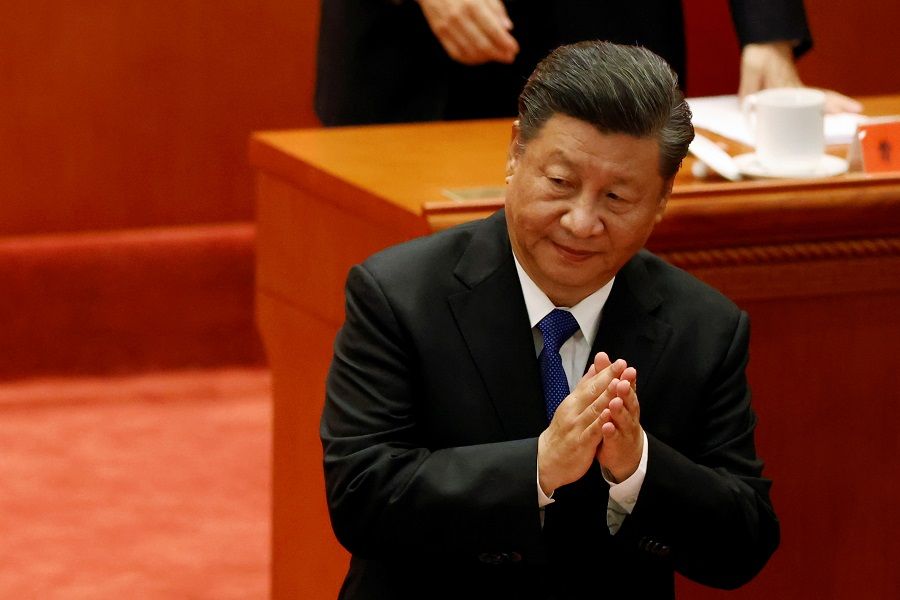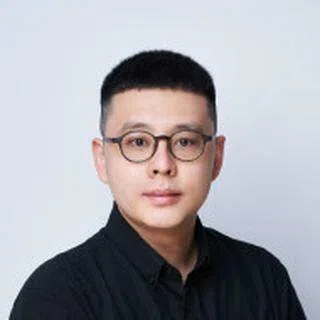Taiwan scholars: Greater centralisation of power expected after the 20th Party Congress
The Graduate Institute of East Asian Studies of Taiwan's National Cheng-Chi University held a seminar recently to discuss the upcoming 20th Party Congress and the political, economic and social policies rolled out in the last ten years of CCP General Secretary Xi Jinping's rule. Zaobao journalist Miao Zong-Han shares the key findings.

Frequent high-level reshuffles and recent provincial party congresses mark a prelude to the Chinese Communist Party (CCP)'s autumn 20th Party Congress.
In view of Beijing's anti-corruption drive, central-local government relations, economic regulatory efforts and social governance developments in the past decade, political scientists and observers in Taiwan believe that there will be an even greater centralisation of power after the congress as the mainland heads towards "institutionalised centralisation" (制度化集权).
The Graduate Institute of East Asian Studies of Taiwan's National Cheng-Chi University held a seminar on 17 June to discuss the congress and the mainland's political, economic and social policies in the last ten years under the rule of CCP General Secretary Xi Jinping.
Corruption yet to be eradicated
The government's anti-corruption efforts have been a main highlight in the past decade of China's political development. Chang Chih-Chung, vice-dean of Kainan University's School of Humanities and Social Sciences said that since 2013, CCP Central Committee cadres and provincial party cadres who were expelled were mostly removed on charges of corruption and bribery (CCP Central Committee cadres under the Organisation Department are mostly of vice-ministerial positions and above, while provincial party cadres are mostly in director-level positions).
... political elites face greater risks in getting their promotions when there are more political standards, which reduce the power-sharing space of the existing elite system.

After 2015, the disciplinary violations warranting expulsion became more comprehensive and expanded to include aspects such as politics, organisation and integrity. At the same time, anti-corruption work targeted at the political and legal system was also strengthened.
In Chang's view, this shows that the CCP's disciplinary framework has evolved from a one-track investigation to taking a multi-faceted approach over the past ten years. This means that expelled party cadres will now be held to account for making multiple infractions instead of one.
However, while anti-corruption efforts have intensified over the past decade, corruption is still rampant, and this reflects institutional vulnerabilities. In addition, political elites face greater risks in getting their promotions when there are more political standards, which reduce the power-sharing space of the existing elite system.
Greater concentration of power at the top
On the other hand, the relationship between China's central and local governments has always been dictated by the level of autonomy granted to local governments. Assistant Professor Tzeng Wei-feng of Tamkang University's Graduate Institute of China Studies observed that over the past decade, Beijing has taken back personnel, financial, judicial and supervisory powers from local governments, tilting the central-local balance of power to the central government, and ultimately the hands of the top leaders.
This has led to an "hourglass model" in central-local government power relations...

At the same time, the mainland has continued to emphasise decentralisation at the grassroots level, such as in the areas of land approval, legislature, and in streamlining administration and delegating powers to lower levels.
This has led to an "hourglass model" in central-local government power relations: the central government wields great power and is able to eliminate those who oppose the system; the grassroots have more executive power and are asked to address issues such as the maintenance of social stability.
Changes in party-state relations are instructive
Changes in party-state relations are also a window through which to observe Chinese politics. Academia Sinica's Institute of Political Science research fellow Tsai Wen-Hsuan pointed out that following the decision to deepen the reform of party and state institutions in 2018, the nature of mainland China's party-state integration can be classified as the "absorption model" (吸纳模式) or the "parallel model" (并列模式).
The former involves a merger of party and government agencies, through means of being completely merged, the former government agency keeping its name, or the former party agency adding its name to the merged entity. In the parallel model, there are "joint offices" (合署办公) and the "decision-making coordination institutions"(决策议事协调机构) of the CCP Central Committee.

Tsai felt that looking at the overall system, the absorption model is more workable, because after the merger, only the party agencies act as administrative entities, while in the parallel model, both party and government agencies can be seen as independent administrative entities, and can only operate through coordination by party committee leaders.
In other words, the absorption model is a more direct implementation of "the party leads everything" (党领导一切), while the more cumbersome parallel model might be just a transition phase leading to a complete merger, and ultimately the assumption of the absorption model.
Impact on the economy
Apart from politics, over the past few years, the Chinese economy has faced various internal and external factors of instability. The authorities have stepped up regulations in several sectors, and there is much attention on whether this will change after the 20th Party Congress.
Associate Professor Chang Hung Yuan of the Department of International Trade at Chihlee University of Technology said over the past ten years, mainland China has faced crises such as curbs on shares, the shared economy bubble and capital outflow. The authorities have tried to make adjustments through structural supply-side reforms, but with the US-initiated trade war and the pandemic, it has had no choice but to go back to its old methods and respond with the "whole nation" system (举国体制).
He felt that while mainland China's current planned economic governance policy retains characteristics of market socialism, and maintains economic growth and an open market with a "strong state", its strong regulatory flavour has led to "regulated market socialism".
In Chang's view, the authority would implement alternating strong and relaxed regulations on selected markets and sectors in the future, which is similar to the "bird-cage economy" suggested by CCP veteran Chen Yun in the 1980s.
This model that emphasises the big picture and requires sacrifices from the "small players", leaving individuals with less autonomy, can be clearly seen from the pandemic controls.

In terms of social governance, Associate Professor Wang Yun of the Graduate Institute of East Asian Studies at National Chengchi University said over the past ten years, mainland China has implemented the "new national system" (新型举国体制) - maintaining stability and suppressing threats to stable political power domestically, while also dealing with various external challenges. This model that emphasises the big picture and requires sacrifices from the "small players", leaving individuals with less autonomy, can be clearly seen from the pandemic controls.
He compared this model to apical dominance in biology in which all resources are subservient to the "big picture". He cautioned that implementing such a model would lead to public frustration with the unequal distribution of resources, and the thought that all efforts are futile, evolving into the "lying flat" (躺平) mentality.
... over the past ten years, the CCP has set up top-level planning agencies in various sectors to concentrate power in the highest core, while enacting laws and emphasising rule of law.
Wang Hsin-Hsien, chair of the Graduate Institute of East Asian Studies at National Chengchi University, summarised that the above analyses spoke of "systemic concentration of power", as evidenced by how over the past ten years, the CCP has set up top-level planning agencies in various sectors to concentrate power in the highest core, while enacting laws and emphasising rule of law.
Chung Yen-lin of the Graduate Institute of East Asian Studies at National Chengchi University also said the CCP has passed three historical resolutions, which were all pushed through under concentration of power by those in office - the third such resolution last year was a show of concentration of power in the current top leader.
Related: Autumn succession: The main plot line of the 20th Party Congress | China to prioritise economic stability ahead of CCP 20th Party Congress | CCP's mysterious summer retreat in Beidaihe: Teeing up appointments ahead of 20th Party Congress | Uniting China under Xi Jinping to build a modern socialist country: CPC to pass new 'historical resolution' at sixth plenum | A new paradigm needed: China cannot achieve 'common prosperity' with Marxism and class struggle



![[Photos] Fact versus fiction: The portrayal of WWII anti-Japanese martyrs in Taiwan](https://cassette.sphdigital.com.sg/image/thinkchina/3494f8bd481870f7c65b881fd21a3fd733f573f23232376e39c532a2c7593cbc)

